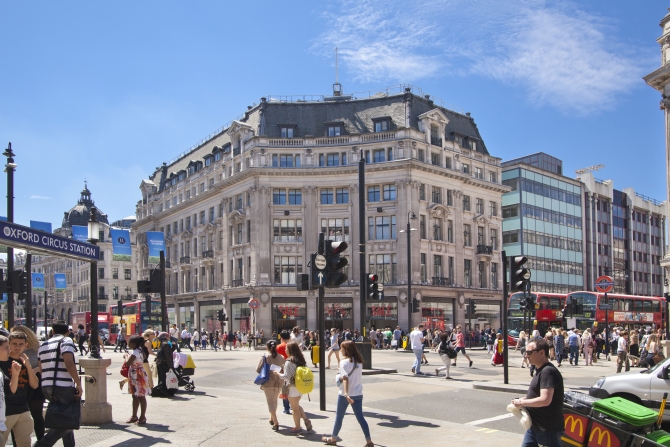The summer sunshine at the beginning of July did much to elevate the mood of British consumers, and it appears that this ebullience translated into a strong period for retail sales. And while online retailers enjoyed a proportion of the success, bricks and mortar retailers were able to perform equally well for the first time in several years due to the growing popularity of services such as click and collect.

During the month, UK retail sales rose by 1.2 per cent on a like for like basis according to the British Retail Consortium (BRC) and KPMG Retail Sales Monitor; a much better showing than in July 2014 when sales decreased by 0.3 per cent. In addition, total sales rose by 2.2 per cent, compared to a 1.3 per cent rise during the same period last year.
The warm weather, coinciding with the start of the school holidays, certainly played a huge part in the boom, as data from Barclaycard showed clothing spending rise by an impressive 14 per cent in the first two weeks of the month. And while the arrival of wetter weather at the end of the month was certainly disappointing for beach goers, it caused the amount Brits spent on food such as takeaways to skyrocket, although total food sales did fall for the first time this year.
BRC director general Helen Dickinson believes that consumers are continuing to cling to spending habits picked up during the recession, during which the emphasis was very much upon finding bargains.
She says; “Despite being a slight slowdown compared with last month, today’s sales growth of 2.2 per cent compared with this time last year reflects the continued hard work by retailers to tap into increasing consumer demand.
“Interestingly, of all categories covered by our monitor, total food sales were the worst performing, recording a fall for the first time this year.
“Retailers have been offering great prices and special offers on everyday essentials for some time – despite 27 consecutive months of falling shop prices it seems that consumers remain content to budget carefully on their necessary food outlay and spend that little bit more on purchases they have perhaps deferred.”
As has been the case for some time now, non-food spending exceeded food sales by quite some way, rising by 3.7 per cent in the three months to July compared to just 0.1 per cent. The best performing sectors were, again, furniture, home accessories and house textiles, largely due to the ongoing strong performance of the residential property market.
Head of retail at KPMG, David McCorquodale, hopes that the latest monitor will prove heartening for retailers.
He says; “Retail sales remained positive in July as improved consumer confidence is slowly winding its way to the tills. Grocers continue to feel the heat with like-for-like sales down 1.6 per cent in the last three months, but this is an improvement from the doldrums of last year.
“Looking ahead, retailers will be hoping more summer sunshine coupled with confirmation that interest rates will stay at 0.5 per cent, will keep consumer confidence riding high into August.”